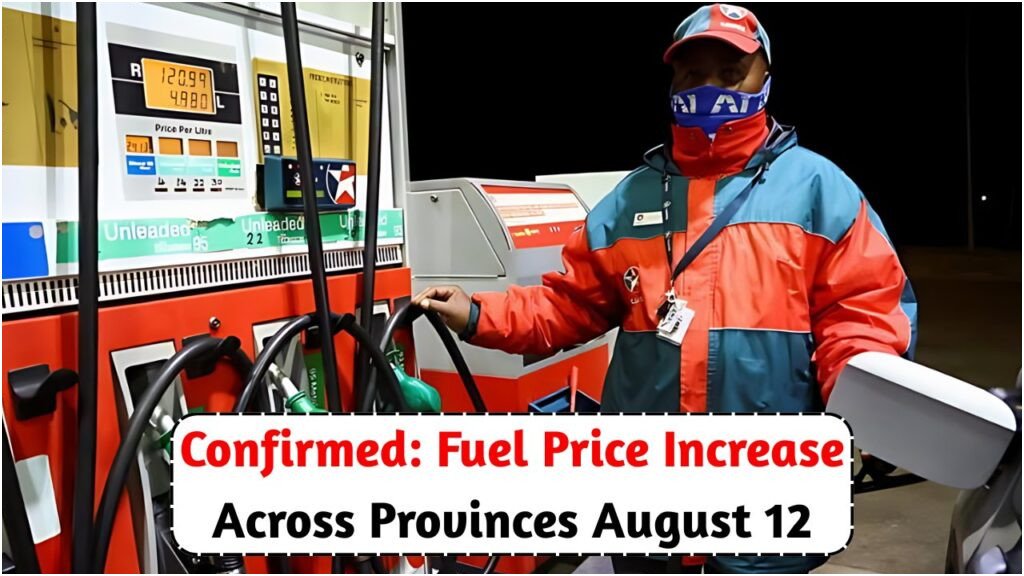Petrol Price Increase Alert: South Africans are urged to take immediate action and fuel up their vehicles before the anticipated petrol price hike on August 12. The looming rise in fuel costs is set to impact motorists across the nation, potentially affecting daily commutes, transportation expenses, and even the price of goods. As the country braces for this change, understanding how to navigate the situation can lead to significant savings. In this article, we explore the reasons behind the price increase, provide tips on how to manage fuel consumption, and discuss the broader economic implications for South Africans.
Understanding the August Petrol Price Surge
The expected increase in petrol prices on August 12 is driven by several factors, including fluctuations in global oil markets and the exchange rate between the South African rand and the US dollar. The price of crude oil has seen an upward trend recently, influenced by geopolitical tensions and supply chain disruptions. Additionally, the depreciation of the rand against the dollar has further exacerbated the situation, leading to higher import costs for fuel. As a result, South African consumers are likely to feel the pinch at the pump, making it crucial for households to budget accordingly and seek ways to reduce fuel consumption.
- Global oil market volatility
- Rand-dollar exchange rate
- Geopolitical tensions
- Supply chain disruptions
- Increased import costs
How to Prepare for the Price Hike
| Action | Description | Benefit | Estimated Savings | Implementation Difficulty |
|---|---|---|---|---|
| Fuel Up Early | Refill your tank before August 12 | Avoid higher costs | R50-R100 per tank | Easy |
| Carpooling | Share rides with colleagues or neighbors | Reduce individual expenses | R200-R300 monthly | Moderate |
| Public Transport | Use trains or buses for longer commutes | Lower fuel usage | R500-R700 monthly | Moderate |
| Fuel Efficiency | Maintain your vehicle properly | Improve mileage | R100-R200 monthly | Easy |
| Driving Habits | Adopt smooth driving techniques | Save on fuel | R50-R100 monthly | Easy |
Impact on South African Households
The anticipated petrol price increase is more than just a bump at the pump; it has the potential to ripple through the South African economy, affecting households in various ways. For many, transportation costs form a significant portion of their monthly expenses. With higher fuel prices, there may be an increase in the cost of goods and services, as transportation of goods becomes more expensive. Additionally, those who rely on long commutes for work or school will need to adjust their budgets to accommodate the increased expenditure.
- Increased transportation costs
- Rise in goods and services prices
- Budget adjustments for households
- Long commute impacts
- Potential for inflationary pressures
Strategies for Coping with Rising Fuel Prices
- Budget adjustments
- Fuel-efficient vehicle considerations
- Alternative commuting options
- Energy-saving driving tips
Broader Economic Implications
The surge in petrol prices not only impacts individual consumers but also poses challenges for the broader South African economy. Businesses that rely heavily on logistics and transportation may face increased operational costs, potentially leading to higher prices for consumers and reduced profit margins. On a macroeconomic level, persistent increases in fuel prices can contribute to inflationary pressures, influencing monetary policy decisions by the South African Reserve Bank. These factors underscore the importance of strategic planning and adaptation to mitigate the adverse effects of rising fuel costs.
- Increased business costs
- Inflationary pressures
- Impact on monetary policy
- Consumer price increases
- Need for strategic adaptation
Long-term Solutions for Fuel Price Volatility
Addressing the issue of fuel price volatility requires long-term solutions that can provide greater stability and predictability for both consumers and businesses. One approach is to invest in renewable energy sources, reducing dependency on imported oil and decreasing vulnerability to global market fluctuations. Additionally, developing and promoting public transportation infrastructure can offer sustainable alternatives to individual car use, reducing overall fuel demand. Policymakers can also consider implementing measures to stabilize the currency, thereby mitigating the effects of exchange rate fluctuations on fuel prices.
- Investment in renewable energy
- Enhanced public transportation
- Currency stabilization efforts
- Incentives for fuel-efficient vehicles
- Promotion of alternative energy solutions
FAQ Section
How can I save on fuel costs?
Consider carpooling, using public transport, and maintaining your vehicle for better fuel efficiency.
What causes petrol price increases?
Factors include global oil market volatility and the rand-dollar exchange rate.
Will the price increase affect other goods?
Yes, higher transportation costs can lead to an increase in the price of goods and services.
What are long-term solutions to high fuel prices?
Investing in renewable energy and improving public transportation are viable long-term strategies.
How does the exchange rate affect petrol prices?
A weaker rand increases import costs, leading to higher petrol prices.





